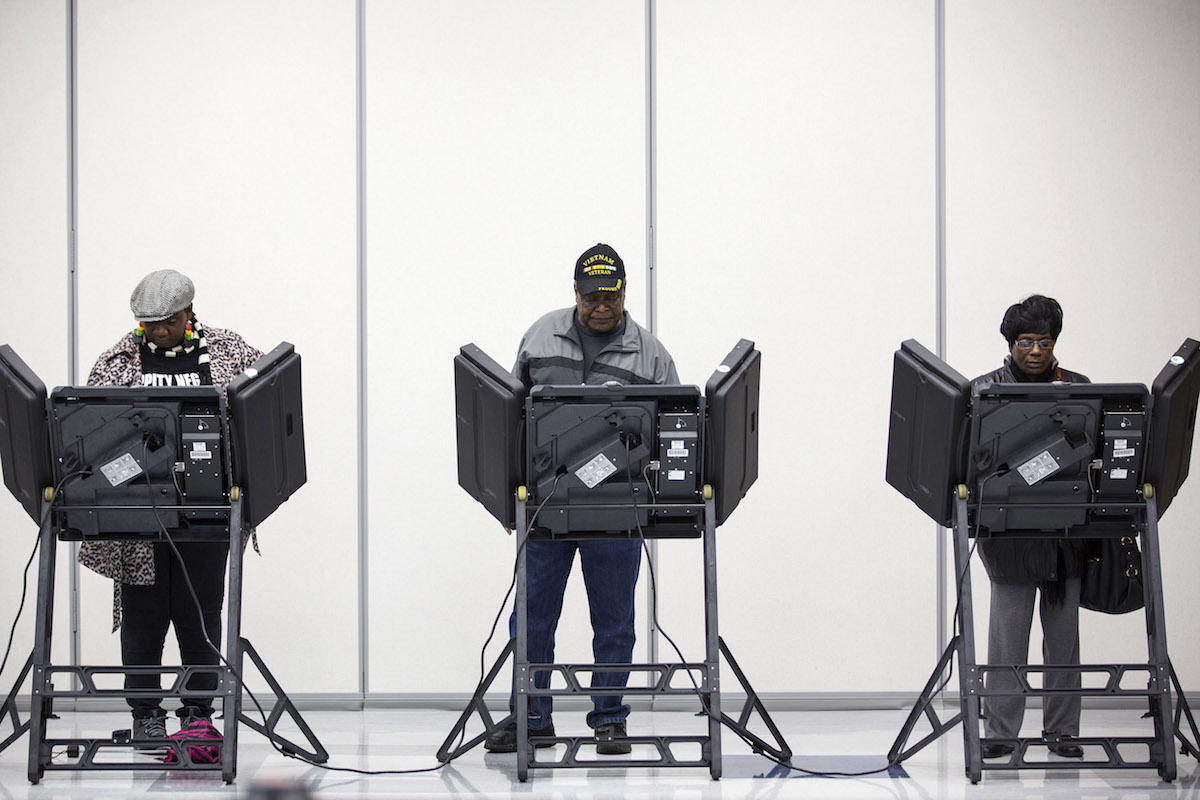Voters cast their ballots in U.S. midterm elections in Ferguson, Missouri November 4, 2014. Black anger at a local Democrat’s handling of the shooting of teenager Michael Brown in Ferguson, Missouri, has given the Republican candidate some hope of winning the race for St Louis County executive for first time since the 1980s. REUTERS/Whitney Curtis, Featured Image
[dropcap]WHEN[/dropcap] ELECTION officials in North Carolina audited the 2016 vote, they found 441 ballots had been cast by felons on probation or parole who voted despite a state law barring them from the polls until their sentences are complete. Those votes were illegal, but most state prosecutors sensibly declined to bring charges on the grounds that the offenders didn’t know the law, weren’t alerted to their ineligibility and didn’t realize they had done anything wrong. [mc4wp_form id=”6042″]
Not so in Alamance County, a small locality in the Piedmont where a dozen individuals convicted of felonies, nine of them African Americans, cast votes. There, the Republican district attorney, Pat Nadolski, has gone forward with prosecutions that reflect his own lack of judgment while reminding the nation of North Carolina’s recent poisonous racial history.
In North Carolina, where 70 percent of the population is white, blacks represent a hugely disproportionate share of convicted felons and incarcerated people. African Americans make up more than two-thirds of the 441 citizens statewide identified as having voted illegally.



You must be logged in to post a comment.